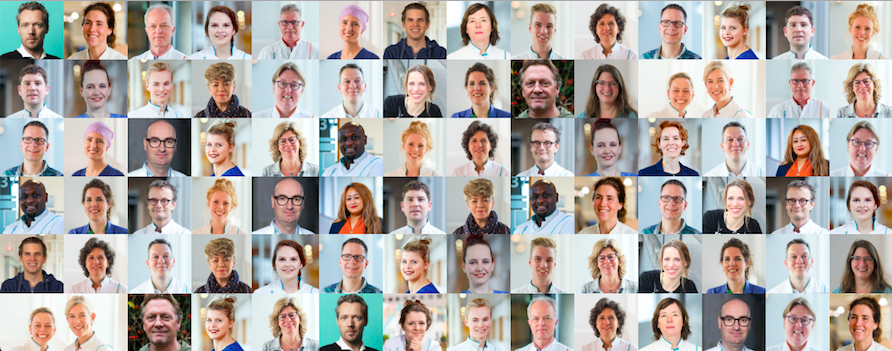PhD candidate 'Deep Learning for tissue-specific RNA splicing predictions'
PhD candidate 'Deep Learning for tissue-specific RNA splicing predictions'
You cannot apply for this job anymore (deadline was 20 Nov 2019).
Browse the current job offers or choose an item in the top navigation above.
Job description
The focus of this PhD project is to critically improve the prediction of the effect of genetic variants on the splicing of human mRNAs with deep learning algorithms, with the ultimate goal to improve the diagnosis of inherited retinal disorders. We assume that many pathogenic variants underlying these disorders are missed, because current splice prediction algorithms are not tailored towards retinal tissue and because splicing is known to be tissue-specific.
The candidate will develop a combination of in silico and in vitro approaches to better predict and evaluate the effects of genetic variants on retina-specific splicing and the resulting proteins. For this, (long read) RNA-sequencing and proteomics data will be analysed. The candidate will introduce tissue specificity into neural network-based splice prediction algorithms such as SpliceAI, which are currently largely agnostic to the tissue, and derive retina-specific splicing motifs. The main expected outcomes of this project are an increase in diagnostic yield of inherited retinal diseases, and a workflow and software for tissue- and transcript-aware prediction of genetic variants on splicing, which can be reused for other tissue-specific disorders.
Tasks and responsibilities
The candidate will develop a combination of in silico and in vitro approaches to better predict and evaluate the effects of genetic variants on retina-specific splicing and the resulting proteins. For this, (long read) RNA-sequencing and proteomics data will be analysed. The candidate will introduce tissue specificity into neural network-based splice prediction algorithms such as SpliceAI, which are currently largely agnostic to the tissue, and derive retina-specific splicing motifs. The main expected outcomes of this project are an increase in diagnostic yield of inherited retinal diseases, and a workflow and software for tissue- and transcript-aware prediction of genetic variants on splicing, which can be reused for other tissue-specific disorders.
Tasks and responsibilities
- Analysis of omics data.
- Development of a deep learning framework based on experimental confirmation of likely pathogenic variants and/or binding motifs for tissue-specific splice factors.
- Writing of scientific articles resulting in a PhD thesis.
- Oral presentations in internal and external meetings.
Specifications
- max. 36 hours per week
- €2422—€3103 per month
- Nijmegen View on Google Maps
Requirements
- You hold a Master of Science degree in Bioinformatics, or in Computer Science with proven interest in molecular biology, or in one of the biomedical sciences with proven programming skills.
- Experience in the development or application of deep learning algorithms is preferred.
- You must demonstrate a strong dedication to research and be interested in resolving important biomedical research questions with novel computational approaches.
- You work in a structured way, document your code and results and use version control systems (like Git).
- You are flexible and communicative, know how to explain your research to peers within and outside your field, and enjoy working in a multidisciplinary team.
Conditions of employment
Fixed-term contract: 4 years.
Upon commencement of employment we require a certificate of conduct (Verklaring Omtrent het Gedrag, VOG) and there will be, depending on the type of job, a screening based on the provided cv. Radboud university medical center's HR Department will apply for this certificate on your behalf.Read more about the Radboudumc employment conditions and what our International Office can do for you when moving to the Netherlands.
Employer
Radboudumc
The Center for Molecular and Biomolecular Informatics is well known for the development of new computational approaches for the study of the genetic variation and commonly used tools and webservices for protein function and structure prediction. The group of Professor 't Hoen is focusing on joint research projects with the Department of Human Genetics and other departments in Radboudumc into personalized diagnostics and personalized medicine approaches based on the analysis of molecular -omics profiles. The department puts emphasis on the reusability of data, software and services following the FAIR principles.The Department of Human Genetics has a dynamic, challenging and international working environment, in which interdisciplinary biomedical research is performed with basic, translational and applied aspects. The group of Professor Cremers aims to identify the causes for inherited retinal dystrophies through an integrated genomics and transcriptomics approach. In recent years he focused on 'hidden mutations' in ABCA4-associated Stargardt disease.
Radboudumc
Radboudumc strives to be a leading developer of sustainable, innovative and affordable healthcare to improve the health and wellbeing of people and society in the Netherlands and beyond. This is the core of our mission: To have a significant impact on healthcare. To get a better picture of what this entails, check out our strategy.
Read more about what it means to work at Radboudumc and how you can do your part.
Specifications
- PhD
- Health
- max. 36 hours per week
- €2422—€3103 per month
- University graduate
- 110088-P563709-1
:fill(white)/logos/umcr-en-wide.png)
